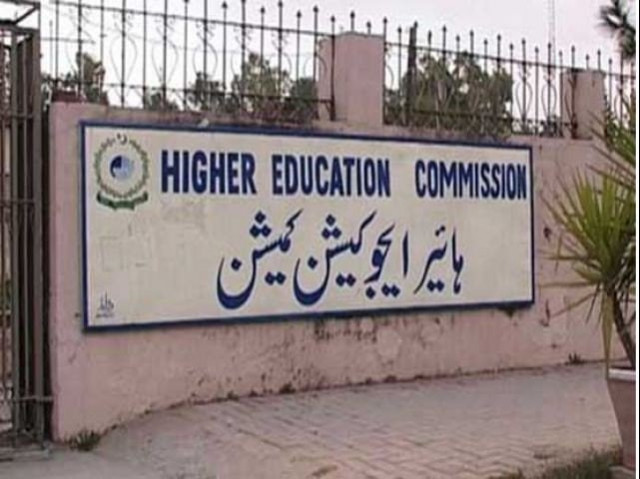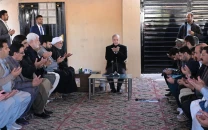Stakeholders reject HEC’s new PhD policy
Vice chancellors of both public and private universities claim policy made arbitrarily

Stakeholders including academics and administrations of the public and private sector universities have strongly rejected the controversial new PhD policy of the Higher Education Commission (HEC) for its unilateral and arbitrary nature.
In a Vice Chancellors Committee meeting held on Friday in collaboration with British Council, 178 out of 180 participants rejected the undergraduate and PhD policies introduced by the authority earlier this year.
The vice chancellors expressed reservations and bemoaned the commission’s refusal to pay heed to recommendations suggested by the stakeholders. They urged the HEC to drop its plans to put the policy into effect and recommended removal of certain features from the policy.
One of the public university administrators present at the meeting voiced concerns that the undergraduate policy stipulates internship as a mandatory requirement, pointing out the students would be reluctant to adhere to any such changes. “They are not even willing to attach their pictures on the admission form,” he said.
Responding to the sharp criticism, Shaista Ikram, executive director of the HEC, assured that the policy would be resubmitted to the commission as per the demands of the stakeholders, following which universities in Sindh may get the nod to continue with the old policy for admission to programmes in the academic session 2022.
Similarly, the Association of Private Sector Universities of Pakistan (APSUP) also welcomed the rejection of new undergraduate and PhD policies.
According to a press release, APSUP had similarly conveyed reservations to senior management of HEC about the new undergraduate and PhD policies in a letter on 14 December 2020.
“Based on seven countrywide consultation sessions, which were attended by 190 vice chancellors, senior academics and experts, recommendations were also communicated to HEC,” the release read.
However, the association lamented that instead of paying attention all these important recommendations were ignored, adding that the unilateral policies were not aligned with ground realities, and were not able to yield a positive impact.
It cautioned that unless end-users and relevant stakeholders were involved from policy formulation to implementation process, the policy will not produce the desired results.
“It is quite a misfortune that instead of reviewing and updating existing policies, after ten years, new policies are being introduced in the higher education sector by hired consultants without any proper consultation process, homework and provision of required resources and training,” the APSUP added.
The changes to the existing mechanism for PhD admission have been eliciting widespread sharp criticism from students as well as academic circles. In a historic first, the HEC’s policy now stipulated that students will be able to pursue a PhD degree in another discipline if the policy makes the cut.
A major aspect of the new policy is that it enables candidates to undertake PhD studies directly after four years of the BS programme.
Moreover, the policy removes the requirement to send PhD dissertations to foreign experts for review and dissertations can now be sent to Pakistani experts too for the purpose. The maximum duration of a PhD degree will be eight years, with the minimum being three years.



















COMMENTS
Comments are moderated and generally will be posted if they are on-topic and not abusive.
For more information, please see our Comments FAQ